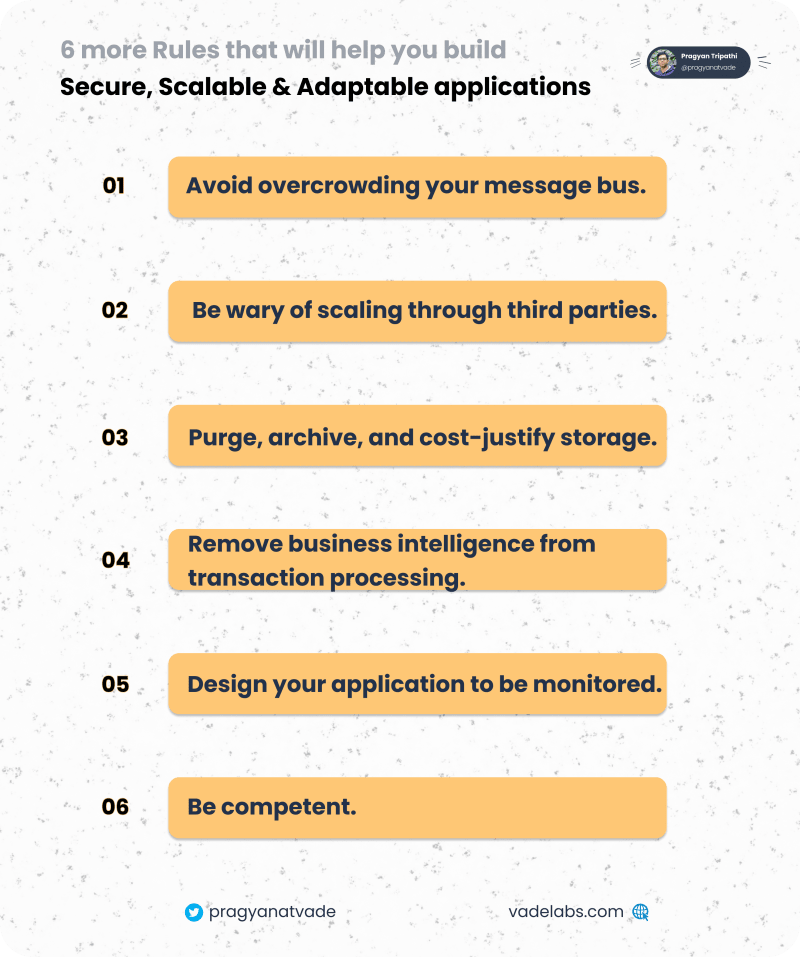“Programming isn’t about what you know; it’s about what you can figure out.”- Chris Pine
6 more Rules that will help you write secure, scalable and adaptable programs:
1. Avoid overcrowding your message bus:
Don't publish everything. Sample traffic to ensure alignment between cost and value. Eliminate low-value, high-cost traffic. Sample low-value/low-cost and high-value/high-cost traffic to reduce the cost.
2. Be wary of scaling through third parties:
Do not rely on vendor products, services, or features to scale your system. Keep your architecture simple and keep your costs in control. It can be violated by using a vendor’s proprietary scaling solution.
3. Purge, archive, and cost-justify storage:
Apply recency, frequency, and monetization analysis to determine the value of the data. Match storage costs to data value. It is important to understand and calculate the value of your data and to match storage costs to that value.
4. Remove business intelligence from transaction processing:
Separate business systems from product systems and product intelligence from database systems. Remove stored procedures from the database and put them in your application logic.
5. Design your application to be monitored:
Think about how you will need to monitor your application as you are designing it. Build hooks into your system to record transaction times. Adopt as an architectural principle that your application must be monitored.
6. Be competent:
Be competent, or buy competency in/for each component of your architecture. Identify the team responsible and the level of competency with that component. You can also buy solutions and be competent in their deployment and maintenance.
The earlier 40 rules: Link
Thanks for reading this.
If you have an idea and want to build your product around it, schedule a call with me.
If you want to learn more about DevOps and Backend space, follow me.
If you want to connect, reach out to me on Twitter and LinkedIn.




Top comments (0)